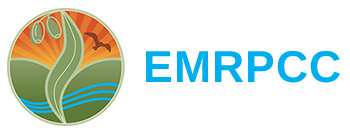Wominjeka
Welcome to EMRPCC
Eastern Metropolitan Region Palliative Care Consortium
Eastern Metropolitan Region Palliative Care Consortium (EMRPCC) is an alliance of palliative care providers in the Eastern Metropolitan Region and includes the Local Government Areas of Boroondara, Knox, Manningham, Maroondah, Monash, Whitehorse and Yarra Ranges.
The Eastern Metropolitan Region Palliative Care Consortium acknowledges the support of the Victorian Government.
Keep an eye on our EVENTS & TRAINING and USEFUL LINKS & NEWSLETTERS pages for new information and learning opportunities.
Eastern Metropolitan Region Palliative Care Consortium members provide services on the traditional lands and waterways of the Wurundjeri people and we offer our respect to their Elders past, present and emerging. We acknowledge all Aboriginal and Torres Strait Islander Communities who live in the Eastern Region.
Latest Updates
Pain relief medicines ‘Made in Australia’ it just makes sense
Palliative Care Australia (PCA) has welcomed news that the Federal Government will invest $20 million to expand the local manufacturing of IV (intravenous) fluids, partnering with Baxter Healthcare to grow their existing facility in Western Sydney (Palliative Care Australia 7 March 2025).
Health groups call for dying patients to receive free pain relief amid critical medicines shortage
Despite advocacy to the Health Minister, the TGA, and the Department of Health and Aged Care, there has been little progress toward ensuring a stable supply of essential pain relief medicines to people who are dying. Palliative Care Australia, working with their members and six other leading health and care organisations, has released an 11-point plan to help those responsible break this deadlock and bring certainty to patients and the sector. The group makes a strong case for urgent action, including removing PBS patient contributions for medicines supplied under the Palliative Care Schedule – making the medicines free to patients and families. See 11-point-plan.
Palliative care patients going without pain relief as medicine shortages bite (The Senior, 12 February 2025)
Palliative and End of Life Care Advice Service
Specialist nurses and doctors provide free, confidential advice for all Victorians seeking information about life-limiting illness, palliative care or end-of-life care. Call 1800 360 000. For more information visit the Palliative Care Advice Service.
Funding Announcement: End-of-Life Care
The federal government has announced that the Support at Home program will commence in July 2025. Those over 65 with less than three months to live and who wish to stay at home will be given priority access to the program’s highest funding classification for additional home care services ($25,000 for 12 weeks). Download a factsheet.
National dementia action plan 2024-2034
This action plan is Australia’s national dementia policy framework. It aims to improve the lives and care of people living with dementia, their carers, and their families over the next 10 years. It provides a vision, guides action by Australian, state, and territory governments, and drives improvements to services and systems. It sets out eight actions supported by monitoring and reporting measures.
NDIS reform brings clarity for people at the end-of-life
The Australian Government has announced some important changes to the NDIS Act and the Rules supporting the Act. Of most relevance for the palliative care sector and patients is the rule change that clearly defines state and territory health services as being responsible for providing specialist clinical palliative care services, and the NDIS as being responsible for funding functional disability-related services.
Staying At Home - Multicultural Dementia Care and Support Program
Australian Multicultural Community Services is pleased to deliver the government-funded Staying At Home - Multicultural Dementia Care and Support Program designed to meet the needs of individuals with dementia and their carers from diverse backgrounds across metro Melbourne and Geelong. Learn more here.
60-day prescriptions
Medical practitioners, nurse practitioners and optometrists permitted to prescribe PBS medicines can decide whether 60-day prescriptions are appropriate for individual patients with ongoing health conditions and who are on a stable medication regimen. A searchable table of the PBS medicines available for 60-day prescriptions is available here.
An Information kit for prescribers has been updated to provide information about changes to the Pharmaceutical Benefits Scheme (PBS) medicines available with 60-day dispensing quantities.
Community of Practice for Palliative Care in General Practice - next session 4 December
GPs are invited to join a Community of Practice for Palliative Care in General Practice. A partnership between the Eastern Metropolitan Region Palliative Care Consortium (EMRPCC), Eastern Melbourne PHN and Eastern Palliative Care aims to enhance palliative care through best practices, capability and capacity building and professional development. Further information and registrations here.
Aged care on-site pharmacist
Funding is available for community pharmacies and aged care providers to employ on-site pharmacists in residential aged care homes. Aged care on-site pharmacists will regularly review medications to reduce medication-related harm and optimise the use of medicines. They will also work with aged care staff to improve the health outcomes of residents and build confidence with families and carers.
Victorian Cancer Plan 2024-2028
The Victorian Cancer Plan 2024-2028 sets the Victorian Government’s strategic direction for improving cancer outcomes for all Victorians. Its development was informed by:
- Statewide sector and community engagement
- Victorian cancer plan monitoring and evaluation framework 2023 progress report
- Victorian Cancer Patient Experience Survey 2022
- contemporary evidence/literature.
Join WiseCrowd
WiseCrowd is open to people with lived experience of the health system and to those who have dedicated their careers to improving community health experiences and outcomes. It has been established by Eastern Melbourne PHN (EMPHN) to improve health and well-being in east and north-east Melbourne. By joining you can help plan, design or evaluate health services to ensure EMPHN's programs deliver outcomes for the community. Learn more.
CareSearchgp App
CareSearch is an Australian Government-funded National Palliative Care project providing evidence-based information and resources on palliative care. The CareSearchgp app is a free digital tool to support GPs in delivering palliative care, bringing together guidance on terminal prescribing for specific symptoms and evidence-based information on key care issues. Interactive features include a checklist to support dying at home and the ability to curate your learning resources and send links to quality information to individual patients. Find out more
Medicare Benefits Schedule (MBS) changes: Advance Care Planning
GPs and other medical practitioners can better support their patients with advance care planning and improve care outcomes under the Medicare Benefits Schedule (MBS) Level E consultation items (60 minutes or longer). More information.
MyMedicare
Registering in MyMedicare will notify your general practice that you have chosen them as your regular care team. Additional funding will be available from the government to help them provide the care you need. See the benefits of registering as a MyMedicare patient here. If you choose not to register in MyMedicare, you can continue to access the same quality of care from your healthcare providers. Start the registration process here or ask your practice to register you in MyMedicare.
Victorian Virtual Emergency Department (VVED)
The Victorian Virtual Emergency Department (VVED) gives access to care for non-life-threatening emergencies 24 hours a day, 7 days a week. Patients are connected to doctors and nurses via a video call using a phone, tablet or computer with a camera and receive medical advice from the comfort of their homes. Read the Patient Information Sheet
Guiding principles for safe and high-quality end-of-life care
The Australian Commission for Safety and Quality in Health Care's fact sheet describes 9 guiding principles that outline a best-practice approach to caring for people approaching the end of life.
Residential Aged Care Homes: Get connected with My Health Record
Register your residential aged care home to use My Health Record. Personalised registration support is available from the Australian Digital Health Agency. When digital health services are connected, healthcare providers and authorised residential aged care staff can access a resident’s key health information. This connected healthcare will support aged care homes so their residents receive better continuity of care.
Younger People Living in Residential Aged Care
The Younger People in Residential Aged Care (YPIRAC) System Coordinator Program is a national initiative funded by the Australian Government and operated by Ability First Australia. It works with people under 65 years who live in residential aged care across Australia who are not eligible for - or may not have tested their eligibility for - the NDIS.
Shield yourself from Shingles
People aged 65 years and over and Aboriginal and Torres Strait Islander people aged 50 and over can access the free shingles vaccination under the National Immunisation Program (NIP). Talk to your health professional or visit the shingles vaccine webpage.
Medical Costs Finder
Medical Costs Finder will help you find and understand the typical costs of common private specialist services across Australia.
Voluntary assisted dying in advance care planning conversations – new resources
Unsure how to navigate the topic of voluntary assisted dying in advance care planning conversations? Check out these resources:
- Guiding principles for staff in health and aged care organisations
- Factsheet for consumers
- Guiding principles for health professionals
ELDAC Factsheets about Voluntary Assisted Dying
ELDAC has factsheets that focus on the roles, legal rights and obligations of health professionals and residential facilities concerning voluntary assisted dying (VAD).
VAD factsheet from End of Life Law Toolkit
This Voluntary Assisted Dying (VAD) factsheet answers commonly asked questions.
PEPA and IPEPA placements
Aged Care Reverse PEPA Placements Available
PEPA / IPEPA placements support health professionals improve their skills and confidence in caring for people affected by life-limiting illness. Placements are available for healthcare workers from various professions, roles, specialties, and contexts. All Victorian specialist palliative care services are encouraged to contact the PEPA office to notify availability to act as a Host site.
For more information email pepa@qut.edu.au or visit PEPA.
Aboriginal and Torres Strait Islander animations on IPEPA YouTube Channel
The videos draw on Aboriginal and Torres Strait Islander cultural strengths and perspectives to educate and entertain communities and health professionals about palliative care themes in a grass-roots way. IPEPA animation scripts were developed by Aboriginal and Torres Strait Islander communities, palliative care workers and health professionals with experience across healthcare settings.
Hospitals - Admitted patient care and specialised facilities for palliative care
An Australian Institute of Health and Welfare (AIHW) report on hospitalisations where palliative care was provided with information about these hospitalisations and the characteristics of people admitted from 2015–2016 to 2020–2021. Data from the AIHW shows that hospitalisations for palliative care continue to increase faster than for all hospitalisations. Read more here.
Reducing barriers to completion of a death certificate
Safer Care Victoria has developed two checklists to minimise barriers to issuing Medical Certificates Cause of Death (MCCD) in palliative care settings. These checklists are for acute health services when discharging patients and admission to community palliative care services.
Free translation service for aged care providers
The Department of Health and Aged Care has established a free translation service for aged care providers to help share written information with older people and their families to support making informed decisions about their care.
National Advance Care Planning Support Service
Make a referral for your patient or client, their loved one or carer to Advance Care Planning Australia's free phone National Advance Care Planning Support Service. Access a free email advance care planning starter pack or request a printed one by calling the National Advance Care Planning Support ServiceTM on 1300 208 582.
AUSLAN factsheet
Murray Primary Health Network in partnership with Deaf Hub Bendigo has developed and translated into AUSLAN the Advance Care Planning factsheet.
CareSearch: Palliative care information hub developed with nurses for nurses
CareSearch's Nurses Hub provides practical and actionable support for nurses new to palliative care and those with experience.
Key Dates
National Advance Care Planning Week: 18 to 24 March
National Advance Care Planning Week is the perfect time to promote advance care planning and expand your knowledge by exploring free resources, attending webinars or hosting an event. The theme for 2025 is Make your choices matter - highlighting the importance of individuals making their own healthcare decisions for the future. Advance care planning provides peace of mind and eases the burden on loved ones. Learn more about advance care planning
National Palliative Care Week: 11 to 17 May
National Palliative Care Week is a chance to explore the thinking and conversations that go with it. It coincides with significant and ongoing reforms across the health, aged care and disability sectors and is a great opportunity to highlight the contribution palliative care is and can make.
National Sorry Day: 26 May
National Sorry Day is a day to acknowledge the strength of Stolen Generations Survivors and reflect on how we can all participate in the healing process for our people and nation.
Dying to Know Day: 8 August
Dying to Know Day in 2024 focuses on personalising final arrangements and building community. All Australians should feel supported and inspired by their wishes for their final arrangements and help to dismantle the misconception that end-of-life planning must be a solitary endeavour. Read more about Dying to Know Day and The Groundswell Project.
Grief Awareness Day: 30 August
Grief Awareness Day is a perfect time to spread the word that everyone grieves, that grief is normal and natural and that no one should grieve alone.
RU OK? Day: 14 September
Conversation can change a life. The RU OK? campaign is designed to inspire and empower everyone to connect with those around them meaningfully. Information and resources
Dementia Awareness Month: 1-30 September
World Alzheimer’s Month is an annual international event held in September and run by Alzheimer’s Disease International. It aims to raise awareness and challenge the stigma surrounding Alzheimer’s and dementia.
Dementia Action Week: 16-22 September
Dementia Action Week is an initiative of Dementia Australia. It aims to encourage everyone to take the first step to learn more about dementia and how to help shape our communities for the better.
World Alzheimer's Day: 21 September
World Alzheimer’s Day is celebrated on September 21 each year. On this day, the world concentrates its efforts on creating awareness of Alzheimer’s disease. With over 50 million people worldwide living with dementia and millions more being diagnosed every year, it is crucial to improve public understanding and provide support for those affected. Watch the Keys Bags Names Words film trailer.
World Hospice and Palliative Care Day: 12 October
2024 marks 10 years since the World Health Assembly (WHO’s Governing Body) passed the only stand-alone resolution on palliative care, calling for all countries to “strengthen palliative care as a component of comprehensive care throughout the life course.” This inspired the theme for 2024 “Ten years since the resolution: How are we doing?” Learn more.
National Carers Week: 13-19 October
National Carers Week is an opportunity to raise community awareness among all Australians about the diversity of carers and their caring roles. This year the theme ‘Millions of Reasons to Care’ aims to broaden awareness of the 3 million Australians caring for their loved ones.
World Hospice and Palliative Care Day: 14 October
World Hospice and Palliative Care Day is held on 14 October each year and is organised by a committee of the Worldwide Palliative Care Alliance, a network of national and regional hospice and palliative care and regional organisations that support the development of hospices and palliative care worldwide.
Spiritual Care Week: 20-26 October
This year, the Spiritual Health Association has released resources to complement the theme Spiritual Care Providers: Beyond Religious Roles.
Drop the Jargon Day: 24 October
Drop the Jargon Day is an annual campaign initiated by the Centre for Culture, Ethnicity and Health to spotlight the language used by healthcare professionals, community services and government sectors.
International Volunteer Day (IVD): 5 December
Millions of volunteers in Australia make enormous contributions to communities around the country. IVD is an opportunity to acknowledge, thank and shine a light on the important work of volunteers.
Website Terms of Use
Your access and use of this website is conditional upon your acceptance and compliance with the terms and conditions set out below. Your use and/or continued access to the website constitutes your agreement to the terms and conditions.
- Not providing professional advice Whilst the EMRPCC Members have exercised due care in ensuring the accuracy of the material contained on this website, the information on the site is made available on the basis that it does not constitute professional advice on a particular matter. This website is not a substitute for independent professional advice. Nothing contained in this site is intended to be used as medical advice and it is not intended to be used to diagnose, treat, cure or prevent any disease. Nor should it be used for therapeutic purposes or as a substitute for a person seeking a health professional’s advice.
- Liability The EMRPCC Members do not accept any liability for any injury, loss or damage incurred by use of or reliance on the information provided on this website.
- Quality of information The EMRPCC Members have made every effort to ensure the quality of the information available on this website and update the information regularly. Before relying on the information on this site, however, users should carefully evaluate its accuracy, currency, completeness and relevance for their purposes and should obtain any appropriate professional advice relevant to their particular circumstances. The EMRPCC Members cannot guarantee nor do they assume any legal liability or responsibility for the accuracy, currency, completeness or interpretation of the information. The material may include views or recommendations of third parties and does not necessarily reflect the views of the EMRPCC Members or indicate a commitment to a particular course of action.
- Links to other websites Materials contained on this website may contain links to other websites. The EMRPCC Members take reasonable care in selecting linked websites but do not accept responsibility for material contained in a website that is linked to this site. It is the responsibility of the user to make their own decisions about the accuracy, currency, reliability and correctness of information contained in linked external websites. Links to external websites are provided for the user’s convenience and do not constitute an endorsement or a recommendation of any third-party products or services offered by any information, material or content linked from or to this site. Users of links provided by this site are responsible for being aware of which organisation is hosting the site they visit. Views or recommendations provided in linked sites may include the views or recommendations of third parties and do not necessarily reflect those of EMRPCC Members or indicate a commitment to a particular course of action.
- Our website security While all reasonable efforts are made to secure information transmitted to this website, by using this website you acknowledge that you do not hold the EMRPCC Members liable for any security breaches, viruses or other malicious software that may infect your computer or any loss of data, revenue or otherwise that may occur.
- Contact details If you have any questions or concerns about our terms of use policy, please contact us at consortiummanager@epc.asn.au.



